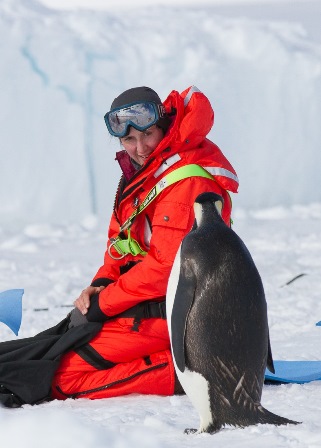10 November, 2015 by Staff Reporter
University of Canterbury (UC) scientists and Antarctic researchers from Italy have struck “research gold” by uncovering the commuting secrets of Antarctic killer whales.
Gateway Antarctica scientist Dr Regina Eisert led a team at Scott Base during the 2014-2015 Antarctic summer that studied killer whales as part of a larger research programme on the Ross Sea ecosystem involving NIWA, Landcare Research and Lincoln University.
Eisert says most killer whales near Scott Base are found to be Type-C, which are common in the Ross Sea and thought to prefer fish prey, including Antarctic toothfish.
“We wanted to determine whether a decline in the toothfish fishery in the Ross Sea poses a risk to Type-C killer whales, including finding out how many there are in the Ross Sea and where they feed,” says Eisert.

At the same time, about 360km north of Scott Base, Italian whale experts Dr Giancarlo Lauriano (Institute for Environmental Protection and Research) and Dr Simone Panigada (Tethys Research Institute) deployed satellite transmitters on killer whales in Terra Nova Bay to determine the whales’ movements.
Eisert says the two teams from New Zealand and Italy hit “research gold” when their results independently verified that Type-C killer whales were commuting between Scott Base and the waters off Northland in New Zealand.
“This suggested that the killer whale had been commuting between Scott Base and Northland,” says Eisert.
“Satellite data received by Dr Lauriano and Dr Panigada showed that the whales swam due north towards New Zealand, confirming beyond a doubt the findings suggested by photo-identification of Ovsyanikova and Visser.
“If Antarctic killer whales roam all the way from Scott Base to the North Island of New Zealand, rather than stay in a relatively confined area as some scientists believe, it crucially changes our understanding of the ecology of these key top predators and the potential threats they may face.